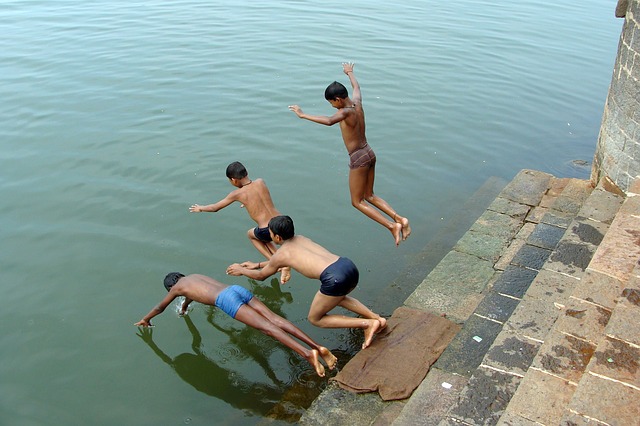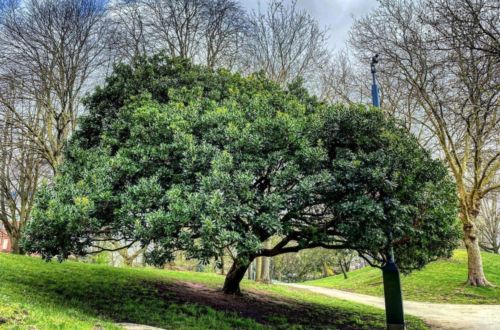
We_School – inspiring project from India
I had the opportunity to meet Ulrike Reinhard in person this summer in Nairobi, during the Global Voices Summit. Since our summer meeting, I have been following carefully her amazing project in India both on the project site, as well as on Ulrike’s personal blog. I have to tell you – she is one of those people who inspire me the most! I am ever so lucky that my life and work on-line bring me together with people like her! She is genuine, she is professional and most of all – inspiring and dedicated to her dream.
Today we will talk about believing in your dreams, following your dreams. As I sit above my shiny mac in a magnificent garden in Oxfordshire few people out there are connecting their skills and expertise to improve the education of their local community – right now, right there! The intensity of their commitment is so overwhelming that I have decided to investigate their project a bit more and share my personal take on it with you.
Let’s start with the vision of We_School in India:
- we_school is based on diversity: The arts, sciences, humanities, physical education, languages and maths all have equal and central contributions to make to a student’s education. Elevating some disciplines over others only reinforces outmoded assumptions of industrialism and offends the principle of diversity.
- we_school embraces the poor: at least 30% of our students will come from families living below the poverty line.
- we-school prepares our kids for a world that is unpredictable by teaching them to adapt, to deal with change and to be prepared for uncertainty.
- we_school is a green school.
- we_school teaches primarily for life, not for business.
- we_school shall raise the living standards of Khajuraho.
- at we_school students will learn to solve local problems with international standards.
- we_school is a networked model which suits the needs of the 21st century.
- we_school fully embraces new technologies. Not only as tools to get things done but much more as organizing principles (= values) such as collaboration, transparency, resonance, empathy, integrity, participation and reputation which define a new aera in teaching and learning.
Did you spot the most important word here? “Khajuraho” – in case if you are not aware of the location, look it up on Wikipedia, as I am sure you have heard of it anyway. We are talking about a school for a local community in an area which is extremely popular on the international scale as a tourist attraction, so why would we need to invest in education there, you might ask.
Well, after my initial chat with Ulrike in summer and quite recently her inspiring post about the project, I have contacted one of the local members of their team, Rajiv Gautam. I am really grateful, that Rajiv took time to explain to me the importance of we_school for their community in a quick call we had last week. I was told that the local youth simply does not think in long term commitment to education and career building because kids are exposed to fast money making opportunities arising from all the tourism in the area. As crazy as it sounds, I can easily imagine how difficult it must be to convince young people to stay in the class room, spend hours over books and plan their future businesses as opposed to living with the opportunity of making easy money here and now! I remember myself as a student I had to face a similar choice – I was offered an amazing job which would take up most of my time and equal with few additional years before finalising my degree. It was only thanks to my wiser friends that I stayed at the uni, dropped the job and continued learning. Today I am benefiting from everything I have learned in those years and I am sure I made the right choice.
But to make the right choices, to think long term and be patient one needs external help from people who know better. School is a perfect solution so I am really happy to see Ulrike bringing her international networks and experience to the we_school project and Rajiv taking the best of their heritage and understanding of the local culture and community to drive this change. I admire the support Ulrike’s friend Egon Zippel provides all along the way too – I remember their trip on bikes around India to study various educational models – such a great idea before the actual kick off of their school!
From what I understand from my conversation with Rajiv the work on the school will begin shortly and there is still so much to do! I am astonished how ambitious and relevant this idea is. I actually think that if it all goes well Ulrike will be able to share this model, the opportunities and all the challenges they might face on the way and all learnings with the international audiences. I think this is potentially a huge idea for truly innovative approach to schooling not only in India, but also in all other countries of the world (yes, including the so called “developed” democracies;)).
I would personally like to know more about the challenges the project was facing initially and might face in the future but I hope to talk to project team more in the next few weeks about that.
In the meantime to learn more about the project go to their blog. I am sure I will post about it more here and in other places on-line and I will follow it closely. For now, let me finish with Ulrike’s words, something that applies to all the dreams, causes and stories we believe in. I started using it as my personal mantra, one which has changed my life already:
So, the dream is big.
But I think is doable.
And we will go for it step by step.
And yes, we’ve started.
Small.
But we’ve only just begun …



